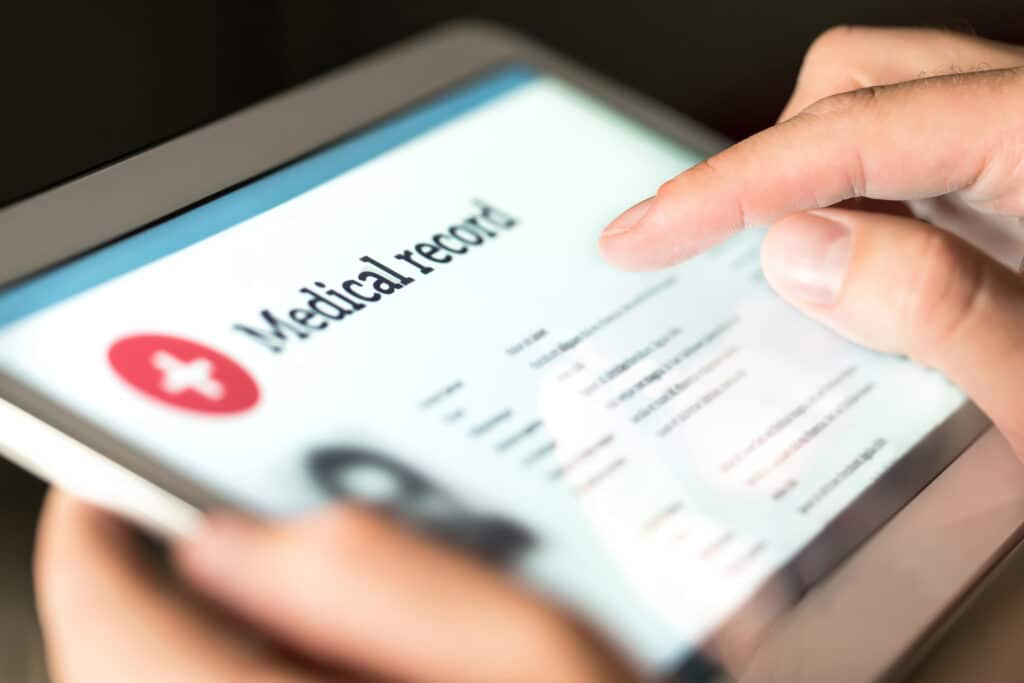When hospitals and doctor offices think about improving continuity of care, they often run into a major hurdle with limitations on data-sharing. Interoperability challenges in healthcare abound, and these gaps in communication between systems, staff, and software make it difficult to ensure consistent, accurate, and timely information. For call center managers, this becomes especially frustrating when triage nurses take patient calls and document symptoms, but are unable to transfer that information directly to a patient’s electronic health record (EHR). That’s where nurse triage software like myTriageChecklist can make a significant difference.
Let’s explore what causes interoperability issues, how they affect patient care, and what you can do to overcome them.
Understanding Interoperability Challenges in Healthcare
Interoperability is the ability for different healthcare systems to access, exchange, interpret, and use data consistently. When interoperability fails, vital patient data becomes cut off (or siloed) in one system and thus unavailable to others that may depend on it.
This happens more often than you may think, and for several reasons:
- EHR platforms use different data standards.
- Security protocols may block third-party data access.
- Health systems may not prioritize integration for triage workflows.
- Manual processes delay real-time documentation.
- Staff have to re-enter data, which increases the chance for mistakes.
All of this contributes to data fragmentation that can disrupt continuity of care, delay clinical decision-making, and frustrate both staff and patients.
The Impact on Hospital Call Centers and Medical Practices
Call centers for hospitals and doctors’ offices serve as the frontline resources for most patient requests. They handle everything from symptom-based calls to follow-up questions, medication refills, and appointment requests. When these calls include clinical information, nurses must have a means of documenting and routing that data to the appropriate provider or department. When triage software can’t sync with an EHR, that documentation has to be transferred manually — a time-consuming process that can become overwhelming and prone to error.
Interoperability challenges in healthcare typically lead to:
- Delayed or lost triage notes.
- Increased call times and patient wait times.
- Redundant data entry and transcription errors.
- Communication breakdowns between nurses and providers.
- Legal liability if urgent symptoms go unaddressed.
For fast-paced medical practices that often deal with high call volume, these issues make it even more difficult to deliver quality care.
Why Triage Software Needs EHR Integration

A key way to overcome these challenges is by implementing triage software that can integrate directly with your EHR. This ensures that triage notes are automatically linked to the correct patient record and immediately visible to the care team. It also allows for better reporting and more accurate follow-up.
With the right software, practices can expect to see these benefits.
- A reduced administrative burden without having to manually copy documents.
- Improved clinical accuracy when nurses are able to follow standardized protocols and notes that are captured in real time.
- Faster care coordination when providers can view triage notes right from their EHR.
- Better audit trails for compliance and liability protection.
- Scalability for the ease of expanding services without increasing manual work requirements.
How myTriageChecklist Solves These Problems
Our flagship nurse triage software solution is built specifically for hospitals, health systems, and doctor offices. It supports both in-house and outsourced nurses by providing them with:
- Protocol-driven, phone-based decision support using Schmitt-Thompson protocols.
- Easy-to-use digital intake and documentation.
- Custom fields for integration with EHRs.
- Real-time call tracking and reporting.
- A secure, HIPAA-compliant architecture.
Call center managers can monitor how well nurses follow protocols, ensure documentation quality, and obtain insights through key performance indicators and analytics. Best of all, it connects the triage process with your broader health IT infrastructure.
Localized Integration and Support
If your hospital or medical practice is trying to manage care across multiple locations, states, or provider networks, you need local interoperability as much as national. Our software can be customized to support:
- Multiple EHR systems across clinics.
- Regional health information exchanges (HIEs).
- Local compliance and documentation needs.
Our team works directly with yours to ensure that nurses get the support that they need, and patients benefit from accurate and timely communication.
Interoperability Is Essential for Value-Based Care

As more healthcare systems adopt value-based care models, interoperability has become an even greater priority. If providers can’t access the right data when they need it, they can’t make timely decisions, manage risk, or reduce unnecessary visits and costs. Nurse triage data may seem like a small piece of the puzzle, but it often serves as the first point of clinical contact for a patient. That makes it crucial for risk stratification, treatment plans, and patient engagement.
Hospitals and practices that address interoperability challenges in healthcare head-on are more likely to meet their quality metrics, reduce readmissions, and improve patient satisfaction.
Let’s Make It Easier for Data-Sharing and Protection
As a call center manager, your role is to keep operations running smoothly while supporting patient safety and staff efficiency. If your current workflows are bogged down by manual processes, disjointed software systems, and communication gaps, it’s time to evaluate whether your triage solution is helping or hurting.
We can help you bridge the gap between triage and treatment by providing an integrated platform that supports your nurses and providers. From better documentation to improved EHR communication, myTriageChecklist is one of the simplest ways to improve your process and contribute to overall care quality.
Want to see how this can benefit your team? Contact us today to schedule a demo!
About TriageLogic
TriageLogic is a URAC-accredited, physician-led provider of top-quality nurse telehealth technology, remote patient monitoring, and medical call center solutions. Founded in 2006, the TriageLogic Group now serves more than 22,000 physicians and covers over 42 million lives nationwide.





